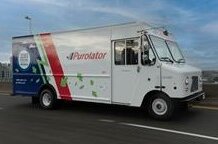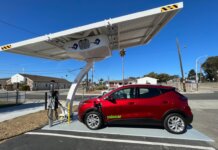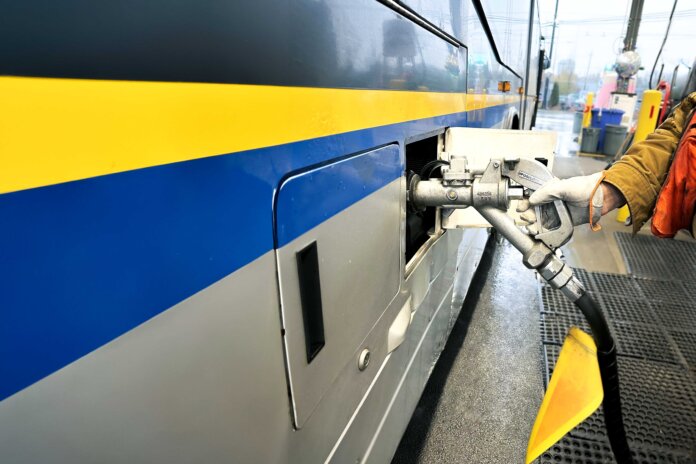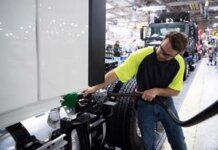TransLink, the transportation network of metro Vancouver (British Columbia, Canada), is introducing renewable diesel into its bus fleet as a cleaner fuel option in order to reduce greenhouse gas (GHG) emissions.
Renewable diesel comes from organic waste, such as used cooking oil, waste animal fats or vegetable oils. As a low-carbon fuel, renewable diesel offers an 80% reduction in GHG emissions compared with fossil fuel diesel.
The Surrey Transit Center will be the first bus depot to transition and will be fully fueled with renewable diesel by January 1, 2024. With this change, TransLink will be reducing total greenhouse gas emissions by 6,550 tons or 5% of TransLink’s total emissions — the equivalent of removing 1,900 passenger vehicles from the road.
“The time to take climate action is now,” says Kevin Quinn, TransLink CEO. “By introducing renewable diesel to our bus fleet, we’re doing our part to move away from fossil fuels. Renewable diesel will deliver rapid GHG reductions while we work to electrify our fleet.”
Implementing renewable diesel will help TransLink achieve specific goals outlined in the Climate Action Strategy, including reducing GHGs 45% by 2030 (from 2010 levels). TransLink remains committed to moving to a zero-emission fleet by 2040.
Additional transit centers are planned to be converted to renewable diesel beginning in 2024. The use of renewable diesel as a fuel source for the West Coast Express and SeaBus is also being studied.
With an expanding SkyTrain network, and a fleet of 280 trolley-electric and battery-electric buses, TransLink provides a robust network of zero-emissions transportation options for customers. The first all-electric transit center — located at Marpole in Vancouver — is under construction and will be completed by 2027. TransLink will deploy a total of 460 battery-electric buses by 2030.






